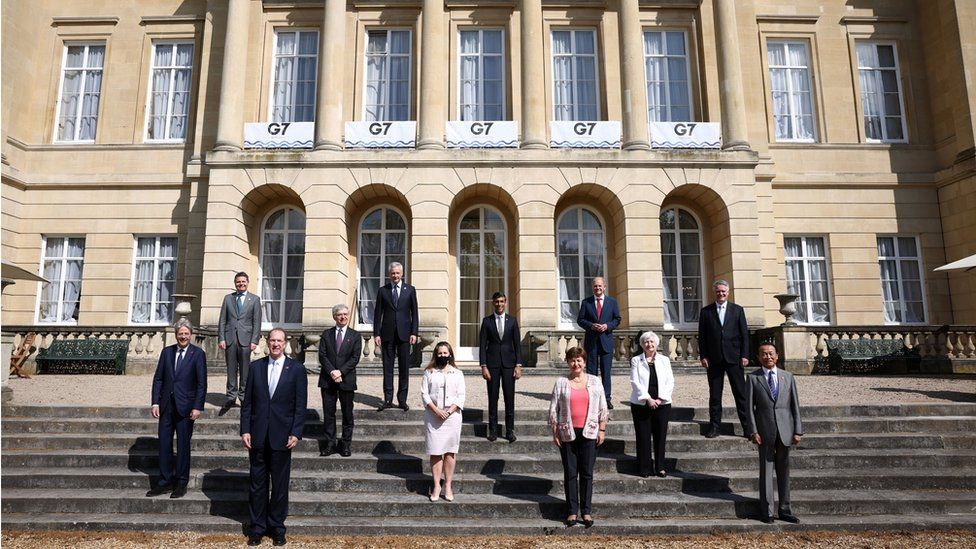A landmark deal struck by rich nations to make multinational companies pay more tax has been criticised by campaigners for not going far enough.
G7 finance ministers meeting in London agreed to battle tax avoidance by making big companies pay more tax in the countries where they do business.
Tech giants firms likely to be impacted have welcomed the new rules.
But the charity Oxfam says an agreed 15% global minimum corporate tax rate is “far too low” to make a difference.
The deal announced on Saturday between the G7 group of wealthy nations – US, the UK, France, Germany, Canada, Italy and Japan, plus the EU – could see billions of dollars flow to governments to pay off debts incurred during the Covid crisis.

UK Chancellor of the Exchequer Rishi Sunak, who hosted the summit, said the agreement would create “a fairer tax system fit for the 21st Century”.

The deal agreed in principle that multinational companies pay a minimum tax rate of at least 15% in each country they operate.
But aid charities said the agreed rate is too low and would not stop tax havens from operating.
“It’s absurd for the G7 to claim it is ‘overhauling’ a broken global tax system by setting up a global minimum corporate tax rate that is similar to the soft rates charged by tax havens like Ireland, Switzerland and Singapore,” said Oxfam’s executive director Gabriela Bucher. “They are setting the bar so low that companies can just step over it.”
She said the deal was unfair as it would benefit G7 states, where many of the big companies are headquartered, at the expense of poorer nations.
Alex Cobham, chief executive of the Tax Justice Network, called the deal a “turning point” but said it remained “extremely unfair”.
“We’ve got one step of the way today – the idea of a minimum tax rate – what we need is to make sure that the benefits of that, the revenues, are distributed fairly around the world,” he told the BBC.
The agreement will be considered at a meeting next month of the G20, including China and India.
Why did they want to change the rules?
Governments have long grappled with the challenge of taxing global companies operating across many countries.
That challenge has grown with the boom in huge tech corporations like Amazon and Facebook.
At the moment companies can set up local branches in countries that have relatively low corporate tax rates and declare profits there.
That means they only pay the local rate of tax, even if the profits mainly come from sales made elsewhere. This is legal and commonly done.
The deal aims to stop this from happening in two ways.
Firstly the G7 will aim to make companies pay more tax in the countries where they are selling their products or services, rather than wherever they end up declaring their profits.
Secondly, they want a global minimum tax rate so as to avoid countries undercutting each other with low tax rates.